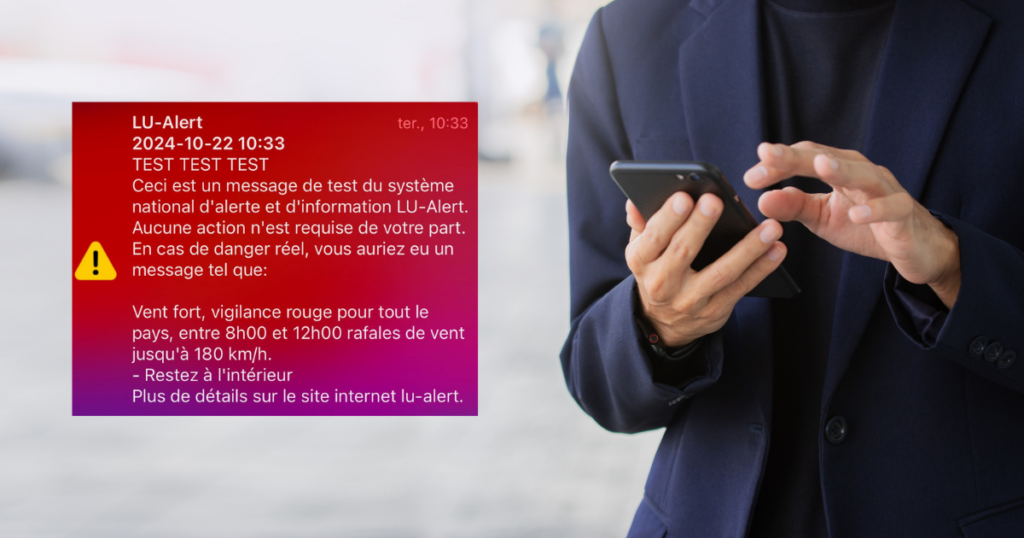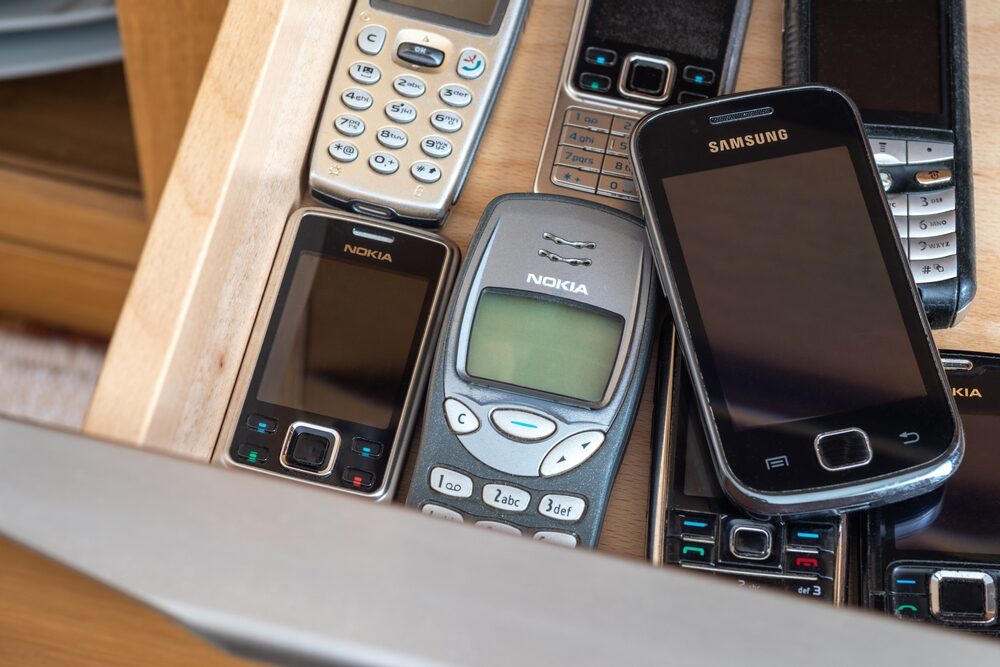
LU-Alert: The connected emergency information system made in Luxembourg is going to the next level
Scroll
Connectivity is not only a backbone of the digital world, but also in general an accelerator of progress and quality of life. Those who are connected are closer to life – and sometimes even live more safely. One example made in Luxembourg: The national emergency information system, which previously operated as GouvAlert and was re-launched mid-October under its new name LU-Alert.
Scroll
LU-Alert is an alert system that enables people in Luxembourg to prepare for foreseeable – and sometimes also not entirely foreseeable – events and take appropriate precautions. The system was under its old name GouvAlert introduced as a mobile solution in 2018 and has since proven its worth. Over the years, GouvAlert has been complemented by a national and regional SMS dispatch system. Both channels have now been incorporated into LU-Alert, where they form part of a multi-channel solution.
What is the purpose of LU-Alert?
The Ministry of Home Affairs sees the solution itself as much more than an alert system for acute emergencies. Rather, LU-Alert is also the tool of choice for disseminating information before an emergency occurs. Prevention and resilience are the keywords here, and meteorological or hydrological forecasts, for example, play a key role with regard to both. The government’s long-term warning strategy has from the beginning been based on a sustainable multi-channel approach that aims to cover as much of the national territory as possible and reach as many people as possible via as many channels as possible.
How does LU-Alert work?
As soon as a public authority decides to inform the population about a possible event or an acute emergency, this authority sends respective warning and information messages via LU-Alert. Public authorities using the new system in a first step include:
- The Water management agency (AGE);
- The Luxembourg Veterinary and Food Administration (ALVA);
- The Luxembourg Fire and Rescue Corps (CGDIS);
- The High Commission for National Protection (HCPN);
- The Meteorological department of the Air Navigation Administration (MeteoLux);
- The Ministry of Foreign and European Affairs, Defence, Development Cooperation and Foreign Trade;
- The Luxembourgish Police.
How is LU-Alert’s connected?
To maximize the territorial coverage of message reception and to reach as many people as possible, LU-Alert is basedon a multi-channel approach. To this end, and depending on the situation, warning and information messages can be transmitted via:
- LU-Alert’s mobile application;
- Location-based SMS (LB-SMS);
- Cell Broadcast (CB; SMS transmitted over a dedicated telecommunication network);
- Government websites (e.g. lu-alert.lu, meteolux.lu, inondations.lu, data.public.lu);
- Press: Radio, television, websites and mobile applications;
- Social media;
- Sirens (currently only used in the event of a nuclear alert).
Who receives messages – and how?
Messages are sent in French, German and English and received in the language that has been configured in the settings of the mobile application. The warnings or notifications are disseminated nationally or regionally depending on the individual case – and are also sent to foreign numbers, provided that the person concerned is in the respective area at the time of sending and is connected to a Luxembourg mobile phone network. The latter is important in a highly international country like Luxembourg with its many cross-border commuters.
LU-Alert’s mobile application can be downloaded, free of charge, from the Apple App Store and the Google Play Store.Besides, all alert and information messages sent from the system can be viewed at www.lu-alert.lu. The website will also allow the population to verify the authenticity of messages received from the LU-Alert sender, in order to assure them that the message sent isn’t a fraudulent message.

